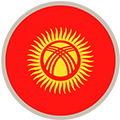|
What are the current rate(s) of Indirect Tax?
|
1. Value Added Tax (VAT)
- Standard rate of 12% for most goods and services.
- Zero rate for some goods and services including:
- Export of goods,
- Processing of goods made on commission imported from EEU member states,
- International rail transport,
- Services connected with transit flights of aircraft and services connected with international carriage,
- Services, connected with electric power supply of pumping stations, engaged in irrigation of agricultural lands, providing population with potable water,
- Supplying goods, work and services to FEZ (free economic zone) entities.
- Exemptions:
- financial services,
- insurance,
- agricultural goods and services,
- utility services,
- sales of fixed assets under a finance lease, supply of goods related to Islamic finance operations,
- supply of medicines (approved list),
- public sector organizations, education, charity, non-profit organizations,
- transportation services by air, sea and land transport
- supply and export of metal-bearing ores, concentrates, alloys and refined metals.
2. Sales tax:
- 2% for banks,
- 5% for activities in the mobile communication sector and the sale of virtual assets,
- 2% for business entities engaged in the sale of newly constructed residential and non-residential premises,
- 2% for insurance (reinsurance) organizations,
- 1% for pension savings funds, unless otherwise specified,
- 1% for trading activities and goods production when selling VAT-taxable goods, works, or services,
- 2% for other activities involving VAT-taxable goods, works, or services,
- 2% for trading activities and goods production when selling non-VAT-taxable or VAT-exempt goods, works, or services,
- 3% for other activities involving non-VAT-taxable or VAT-exempt goods, works, or services,
- 2% for non-cash payments and 3% for cash payments for sales of goods to entities operating under a patent-based system, as well as certain other specified entities,
- 4% for sales to anonymous entities,
- 1% for payments made in a non-cash form and 3% for payments made in cash for entities operating under a special trade zone tax regime.
Exemptions:
- The sale of goods, performance of work, and provision of services are exempt from sales tax if conducted by:
- an agricultural producer and/or a machine and tractor station;
- an agricultural cooperative;
- a society of persons with disabilities, an organization, or an individual entrepreneur where persons with disabilities (except for individuals with a Group 3 disability due to general illness) constitute at least 50% of the total number of employees, and their wages amount to at least 50% of the total payroll. The list of such societies, organizations, and individual entrepreneurs is determined by the Cabinet of Ministers;
- preschool educational institutions (private kindergartens);
- industrial enterprises engaged in activities subject to preferential taxation, as established by Part 1 of Article 183 of this Code (excluding mining and processing enterprises, as well as enterprises producing excisable goods);
- taxpayers registered and operating in preferential border settlements;
- private medical institutions specializing in cardiac surgery, as well as dialysis services for individuals with end-stage chronic renal failure;
- services related to religious rituals, ceremonies, and pilgrimages;
- charitable organizations;
- under an agreement on a socially significant facility in the manner and under the conditions established by Part 2 of Article 295 of this Code;
- an association of legal entities, an employers' association, or a public association providing services to its members and/or participants;
- the provision of pension services, services related to pension and benefits payments, and traditional postal services by designated postal operators with more than 50% state ownership, operating under a postal communication license.
- The sale of goods, performance of work, and provision of services by a non-commercial organization are exempt from sales tax, provided that the payment does not exceed the costs of selling such goods, performing such work, or providing such services:
- for social security and protection of children or low-income elderly citizens;
- in the fields of education, medicine, science, culture, and sports;
- for the rental of property owned in common by residents of a multi-apartment building, provided by housing owners' associations.
- The sale of the following is exempt from sales tax:
- electricity, heat energy, and natural gas to individuals for household use;
- by a bank:
- refined standard and measured gold and/or silver bars, investment coins;
- fixed assets or goods under financial lease agreements and agreements under Islamic financing, except for interest income under such agreements;
- refined standard and measured gold and/or silver bars,investment coins sold by a refinery that is a certified domestic organisation of the London Bullion Market Association.
- Goods intended for the development of sports, sold to entitites determined by the Cabinet of Ministers, are exempt from sales tax.The list of goods intended for sports development is approved by the Caninet of Ministers.
|


